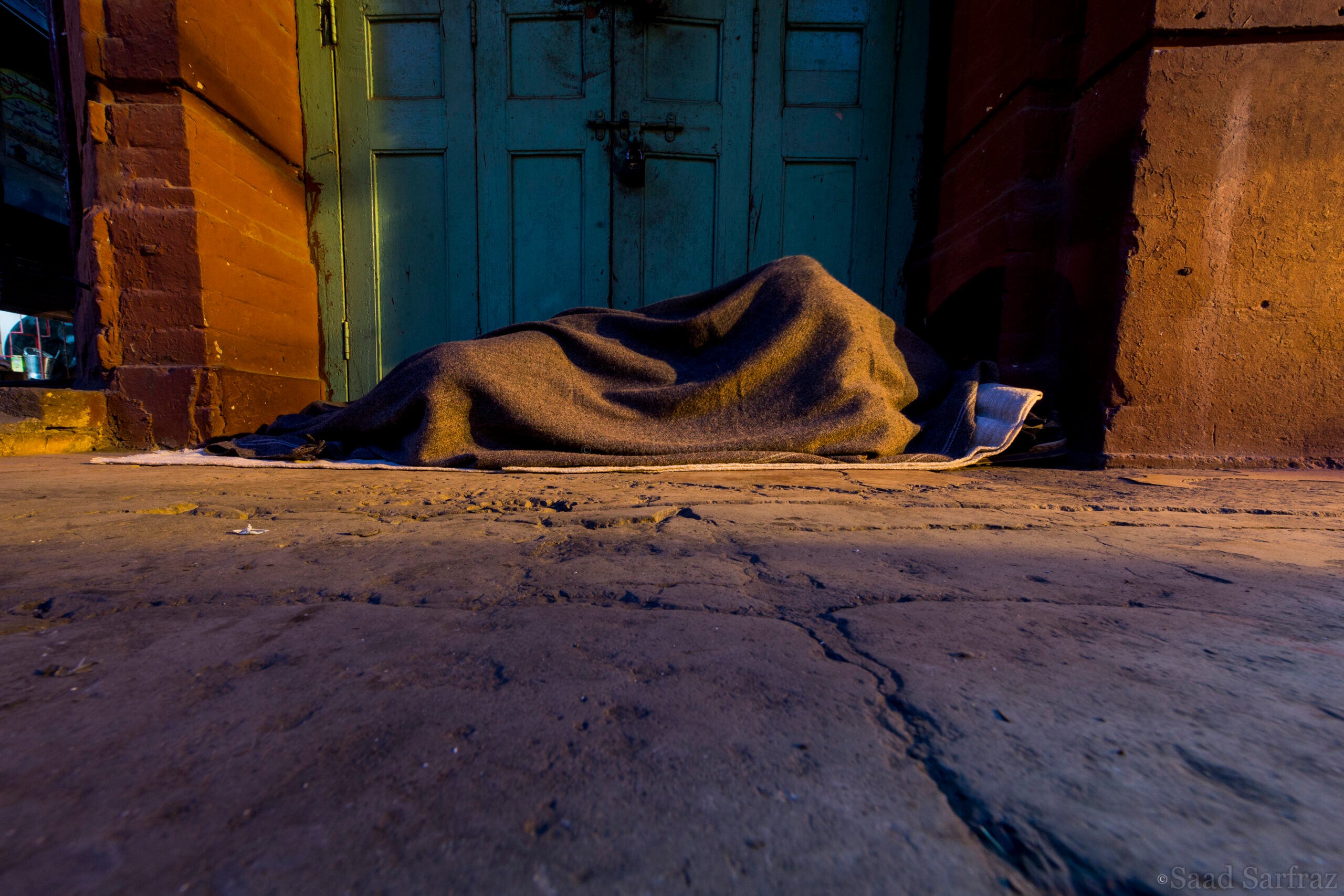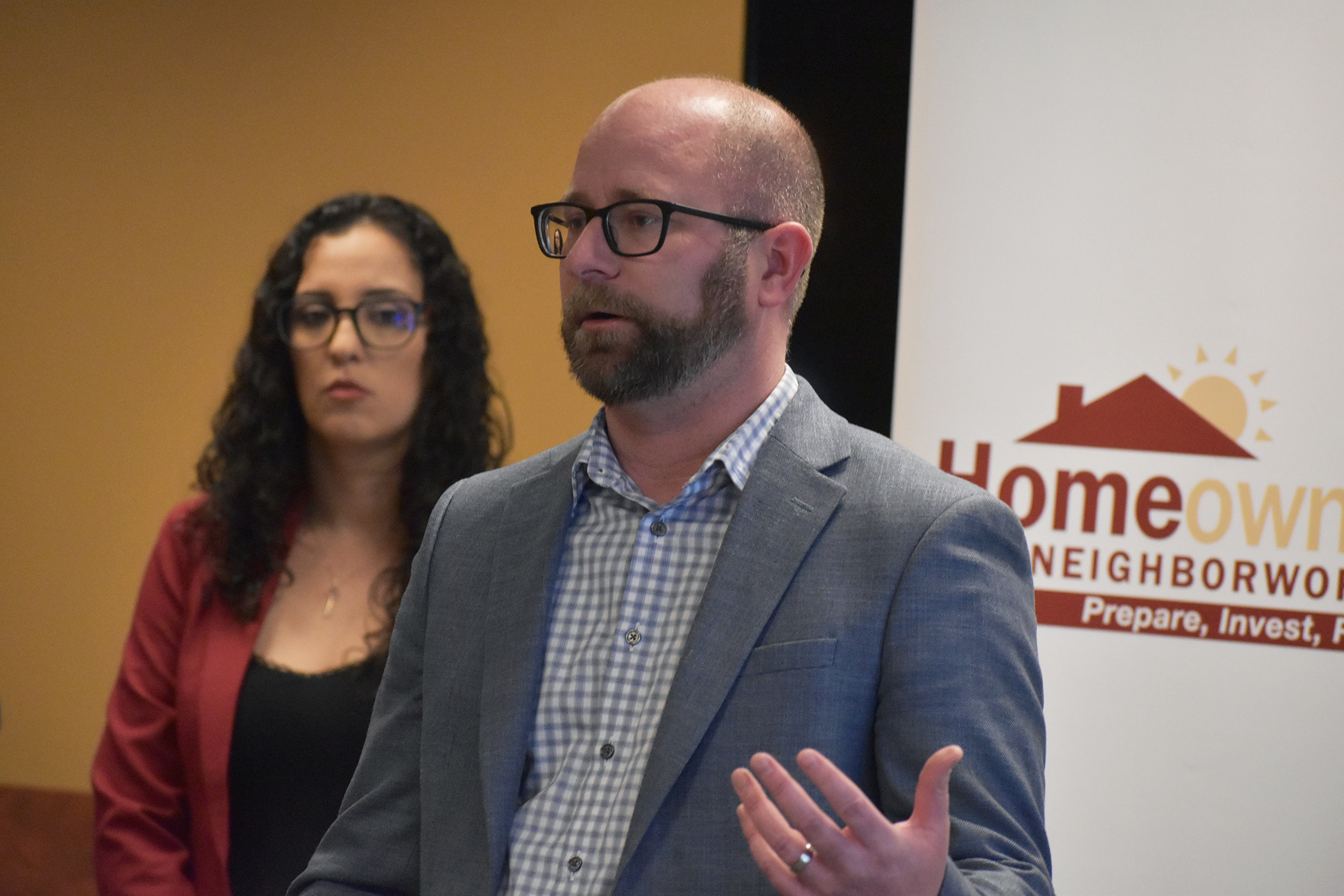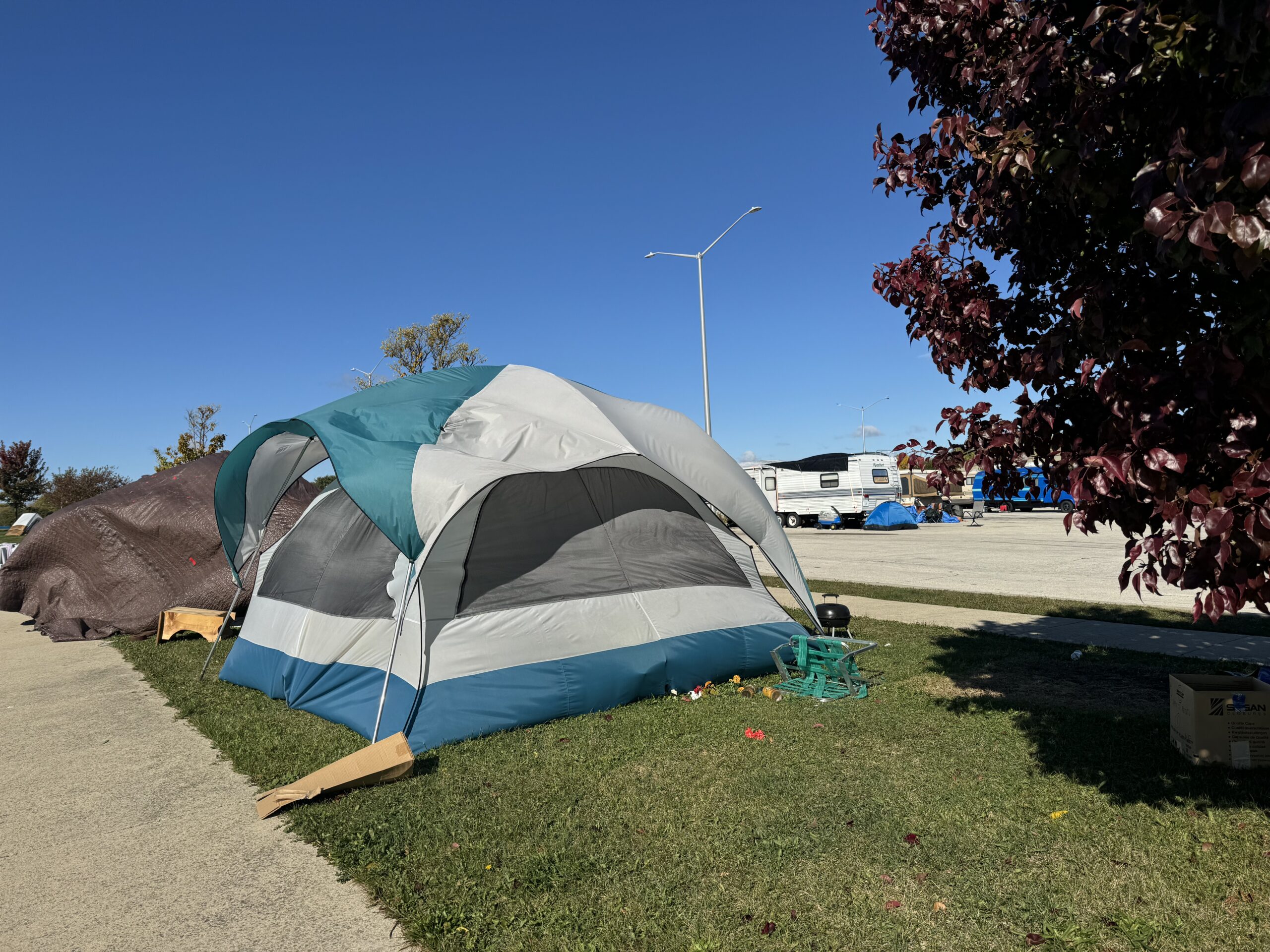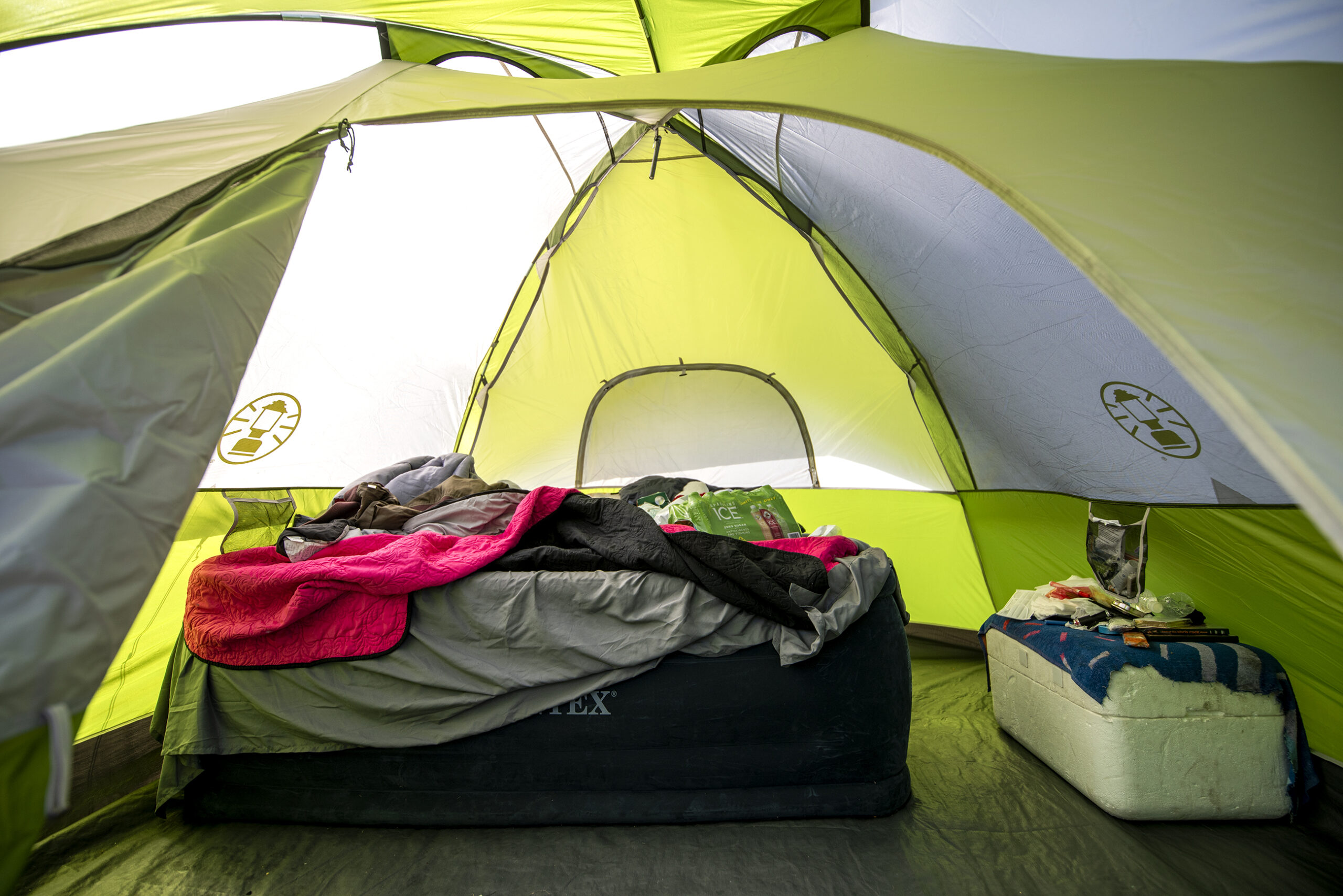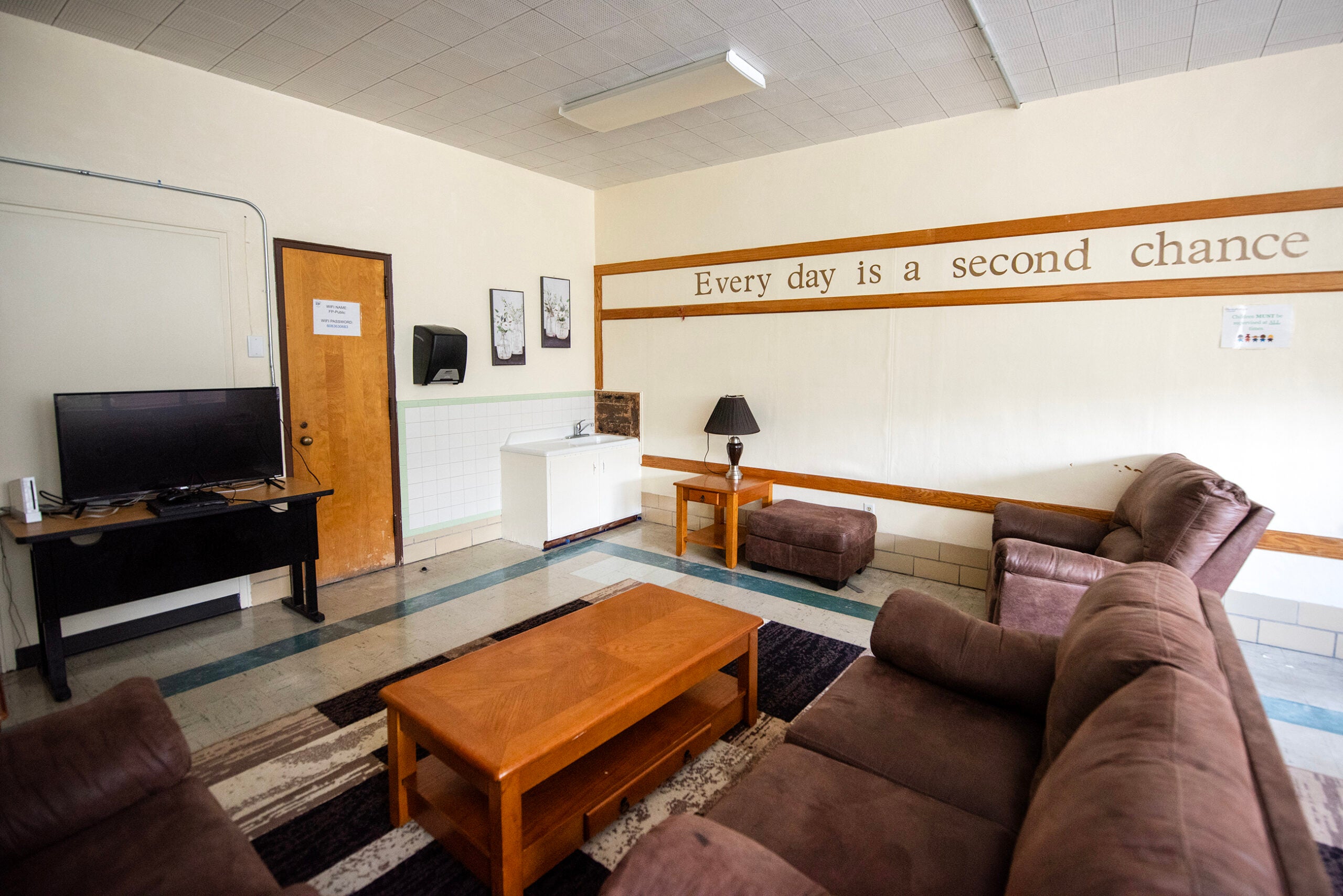With a fresh layer of snow on the ground and temperatures below freezing, Gov. Tony Evers issued a warning Tuesday while appearing on WPR’s “The Morning Show.”
“Winter seems to be starting early this year,” Evers said. “We need help with the shelters.”
Service providers and community leaders across the state have raised concerns in recent weeks over bed shortages at homeless shelters for adults and families needing a warm place to rest and grab a meal.
News with a little more humanity
WPR’s “Wisconsin Today” newsletter keeps you connected to the state you love without feeling overwhelmed. No paywall. No agenda. No corporate filter.
About 4,800 people faced homelessness in Wisconsin last year, according to estimates by the National Alliance to End Homelessness.
Since the start of October, “The Morning Show” has produced more than a dozen interviews examining homelessness and housing insecurity in Wisconsin. On Tuesday, Evers joined the program to discuss affordable housing, state spending priorities and the minimum wage.
The following has been edited for clarity and brevity.
Kate Archer Kent: The leader of the Wisconsin Interagency Council on Homelessness, Michael Basford, was on our program recently and said our state is spending less annually on homelessness prevention than in more than a decade. What is your position on how Wisconsin is funding prevention initiatives?
Gov. Tony Evers: I chaired the council for four or five years. I know what Mike was talking about. We have proposed significant increases in the issue of homelessness, whether it’s running affordable housing, drug services, mental health, you name it. Republican and Democrat legislators seemed interested in that, and we were unable to make it through.
In turn, during the pandemic, we were able to use approximately $125 million of American Rescue Plan Act money that I did not need Republican help to get to utilize. That made a difference in people’s lives.
But we need to have a robust conversation around this. Republicans continue to move in a different direction. Although, I will say, they worked hard in this last budget to put together half a billion dollars, a little more than that, for affordable housing, which is very helpful for those that are suffering from homelessness.
KAK: In recent weeks, we’ve talked with service providers in Eau Claire, Green Bay, La Crosse, Madison and Milwaukee. Some have raised concerns about shelters being over capacity and having waiting lists. How could the state government better support our shelters?
TE: We certainly have enough money left over in our budget that could be used for those services. Hopefully, the specter of that will increase the Republicans’ interest in doing something to support the shelters in a better way. But we’ll continue to do whatever we can to use federal money to help the shelters out.
Winter seems to be starting early this year. Really, in my mind, that’s a time where we need it — we need help with the shelters.
KAK: Brad Paul oversees Wisconsin’s poverty fighting network. When we spoke to him, he said the state is scratching the surface with funding for affordable workforce housing. The problem, Brad Paul said, is a federal issue. How could the federal government help in this capacity?
TE: It was almost a surprise. We had some really good support from the Republicans in the last budget and provided $525 million for affordable housing, which begins to scratch the surface. But it’s something that we have to really double down. It was a good start.
Affordable housing leads to more housing for low-income folks and those that maybe are just coming into our state and working, or working in industries in the state of Wisconsin that don’t have the money to buy their own affordable housing, especially some of the ones that are going to be used for making apartments in downtowns across small towns in the state of Wisconsin.
KAK: How do you think lawmakers could try to incentivize developers to build more affordable units?
TE: Incentivize and meet the costs for them — also working with the Wisconsin Housing and Economic Development Agency to lower the costs for doing it and it’s already starting there. The money is beginning to get out the door. There’s all sorts of apartments that exist that are empty and downtown small towns, especially in the upstairs above different retail outlets, that could be used for affordable housing that are being worked on right now to bring them up to code. So they’ll be good opportunities for people that are lower income or without income.
KAK: You really see that as a key way to also revitalize main streets and make those more of a central place?
TE: Yes, absolutely. Some of that $500 million will also go towards efforts. If there is a larger facility that some company went bankrupt that’s been sitting empty, that can be made into affordable housing. There are some good ideas out there.
But I’ll tell you, we’ve got a long way to go. I don’t want to make it sound like this issue has been resolved because it hasn’t. We’re just scratching the surface.
KAK: We interviewed Todd in Madison, who was experiencing homelessness. Todd shared how one friend in an electric wheelchair had been unable to access a shelter and had passed away due to being in the cold overnight. Is the state providing adequate support to people with disabilities who are experiencing homelessness?
TE: Well, obviously, in that case, no. … The local folks that are in charge of this dedicate their time to providing services for the homeless. But those things just shouldn’t happen. We have to worry about people with physical impairments. We have to worry about people that are homeless, that struggle with mental illness, all those things as far as providing those services that are needed to allow them to live a reasonable life and know that, obviously, there was something that happened there that shouldn’t have.
But at the end of the day, the more resources we put towards providing those services, towards affordable housing, towards food insecurity — those are the things that help. In addition, we have kids going to school that we have to make sure that they get the services they need also.
KAK: The minimum wage is $7.25 an hour and has been since 2009. Republicans have previously rejected your proposals to raise the minimum wage. Do you foresee any movement on that stalemate?
TE: Not right now. Hopefully, we’ll have a different percentage of folks inhabiting the Capitol. But the Republicans have indicated no interest in this. Hopefully, at some point in time, the numbers will be closer to even at that time. I think we’ll find some more rational thinking around that.
But to be honest with you, I don’t believe there is a magic number per se. Hopefully, we can ratchet up to $15 an hour and further. But we need help from the Legislature. That’s not something I can do on my own.
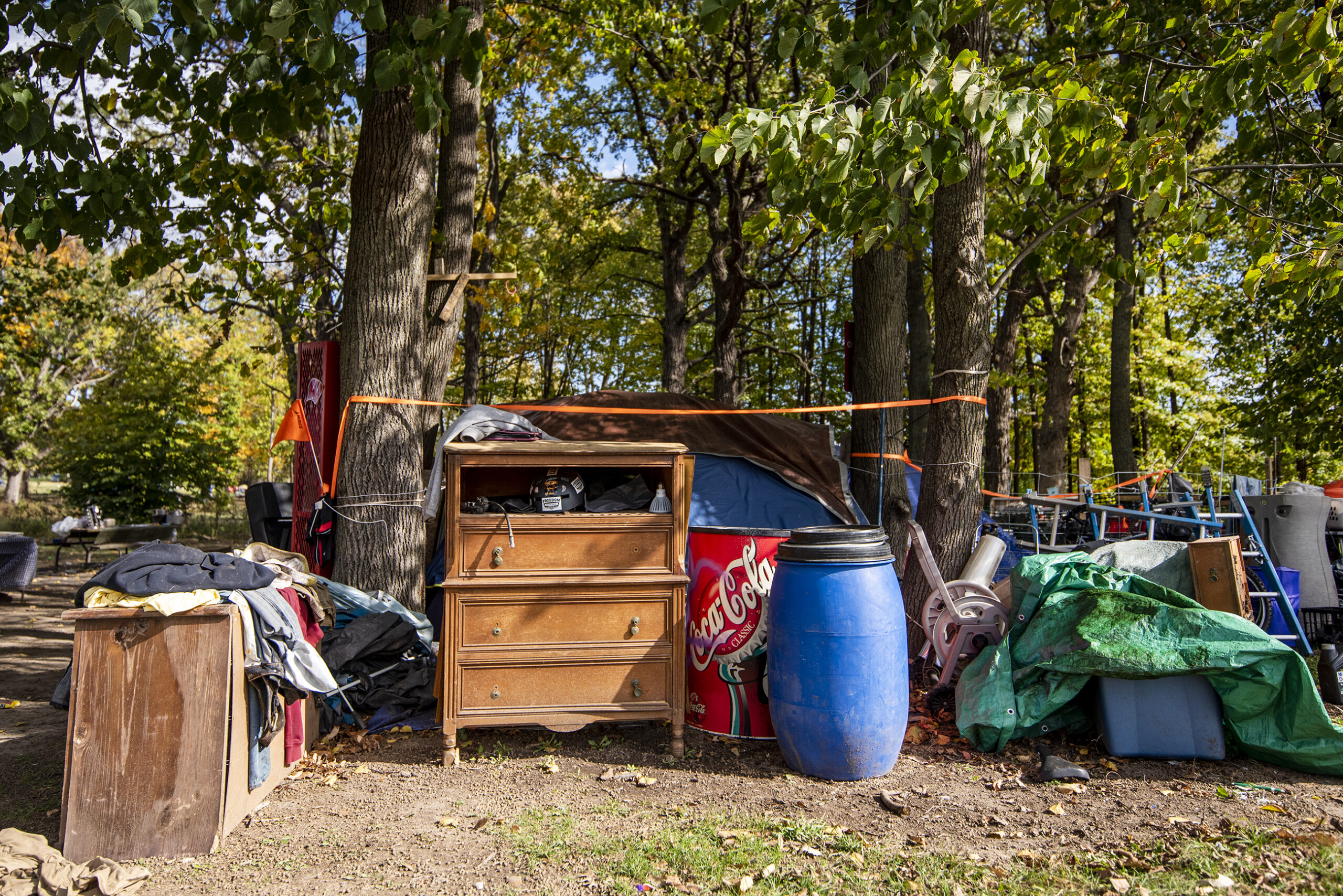
Additional interviews about homelessness
Nov. 28: How can Wisconsin prevent and end homelessness? We hear from Gov. Tony Evers, the leader of Wisconsin’s Department of Children and Families, and two state legislators.
Nov. 22: According to estimates, more than 550 people experienced homelessness in Brown County last year. We learn more about the region’s plan to prevent and end homelessness.
Nov. 17: We discuss the barriers facing people who want a job but are without an address. Plus, we hear how employers can advocate for the homeless population.
Nov. 14: We explore homeless prevention efforts and housing insecurity with the mayors of Milwaukee and Madison.
Nov. 10: We learn about supportive services for homeless youth. Then, we examine efforts to create stable housing and support for Wisconsin veterans.
Nov. 8: The Red Cliff Chippewa Housing Authority manages hundreds of rental units and administers housing programs to tribal members. We discuss establishing affordable housing to prevent homelessness.
Nov. 3: We discuss housing and income insecurity in northern Wisconsin. Plus, we learn how a former hotel was turned into a local shelter to support homeless people.
Oct. 30: How does poverty contribute to homelessness? We hear from Wisconsin’s poverty-fighting statewide network. Then, we learn more about food insecurity.
Oct. 25: We learn how Wisconsin is bridging the gap between homelessness and public health systems. Then, we explore a five-year plan in La Crosse to address homelessness.
Oct. 20: Leaders of the Wisconsin Housing and Economic Development Authority and the Wisconsin Builders Association talk about statewide plans to improve affordable housing.
Oct. 11: The head of Wisconsin’s Interagency Council on Homelessness discusses its action plan. Then, we explore how Utah and Washington leaders are responding to homelessness in their states.
Wisconsin Public Radio, © Copyright 2025, Board of Regents of the University of Wisconsin System and Wisconsin Educational Communications Board.



